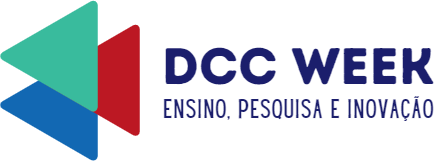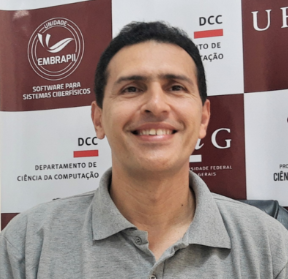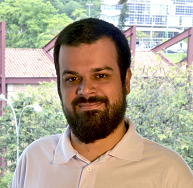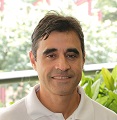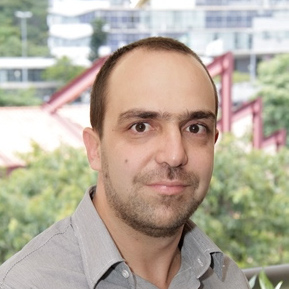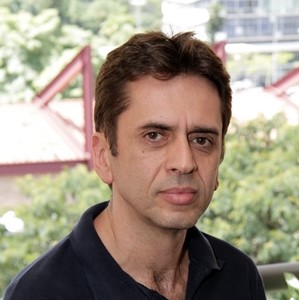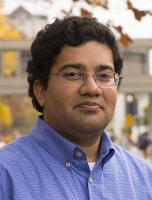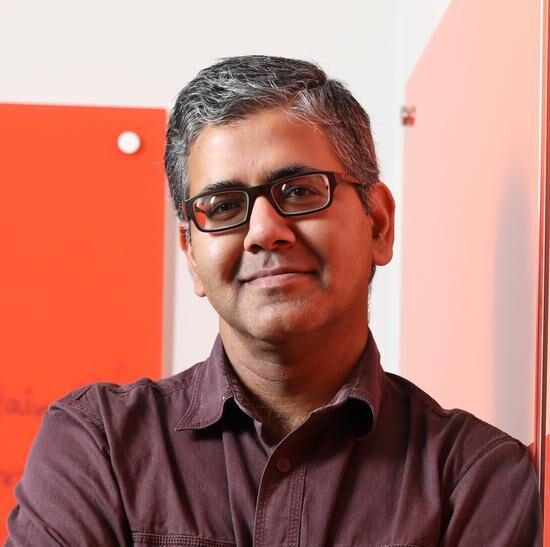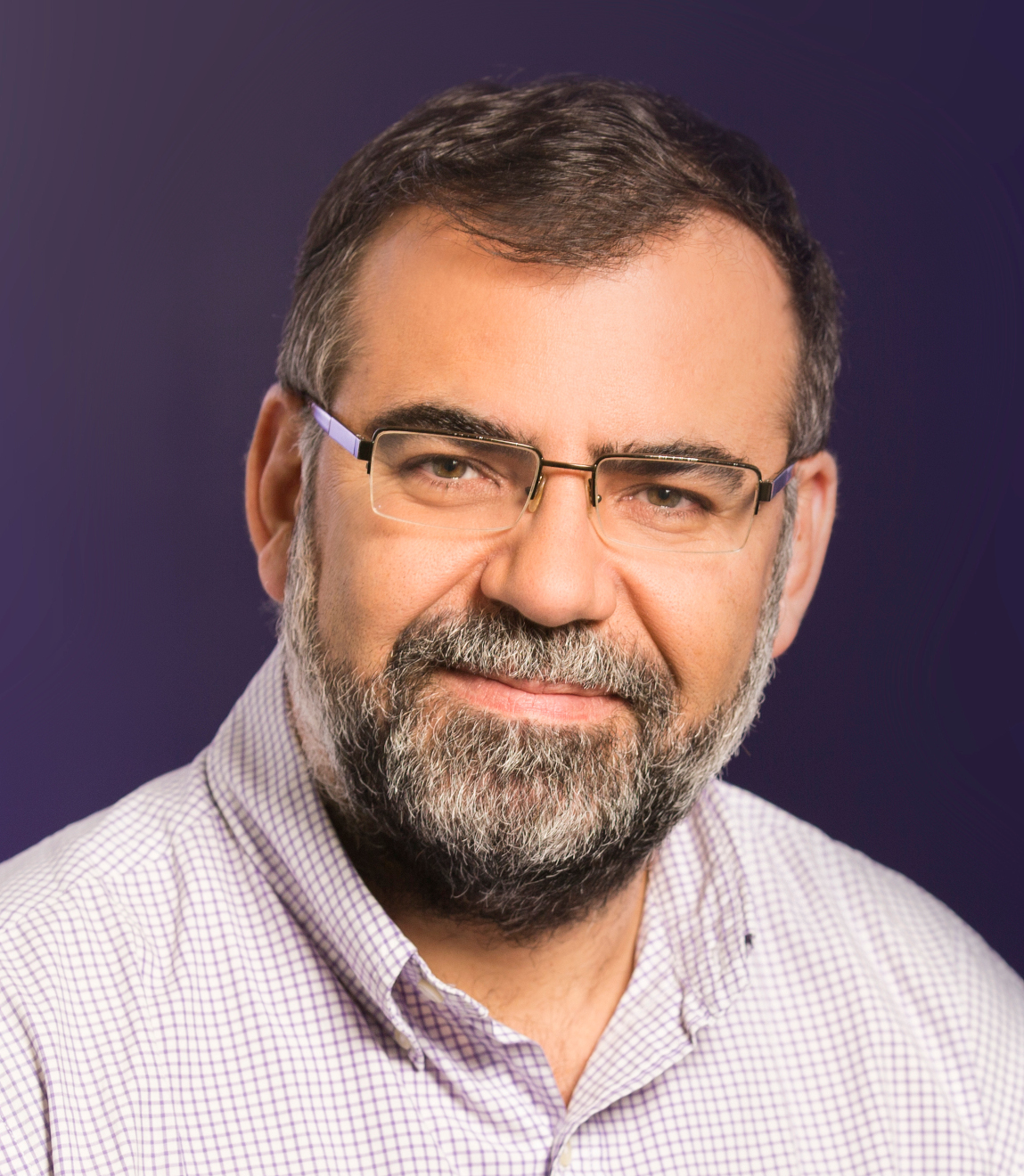Esta miniapresentação divulgará a iniciativa da Sociedade Brasilieira de Computação (SBC) através da sua Diretoria de Educação em propor um referencial de formação para os cursos de graduação em Bacharelado em Cibersergurança. Há uma carência mundial de profissionais nesta área. O objetivo é apresentar de modo simples os eixos que abragerão o curso e sua diferença para os cursos, bem como tirar dúvidas da audiência desde o contéudo técnico até as possíveis áreas de atuação.
Jogos, Quebra-Cabeças e Complexidade Computacional
Muitos jogos e quebra-cabeças atraem o interesse de pessoas em busca de desafios intelectuais. De certa forma, a dificuldade de uma atividade ajuda a torná-la instigante: um quebra-cabeça muito simples rapidamente se torna desinteressante. Frequentemente tal dificuldade pode ser formalizada, permitindo demonstrar que tais jogos também são difíceis, em diferentes níveis, até mesmo para modelos computacionais.
O estudo da dificuldade de jogos acompanhou os avanços da complexidade computacional, não só utilizando as ferramentas já existentes para a determinação da dificuldade de certos jogos, mas também motivando o desenvolvimento e formalização de novas ideias e modelos.
Nesta palestra discute-se como diferentes jogos (ou mesmo diferentes versões de um mesmo jogo) se posicionam em diversas classes de complexidade, não só nas famosas classes P e NP, mas até em classes mais gerais, como PSPACE e EXP.
Computação e Nanotecnologia
Ciência de Dados Aplicada à Saúde
Apesar do entusiasmo atual associado ao uso de algoritmos de mineração de dados e aprendizado de máquina, seu uso real ainda é um desafio em vários cenários de aplicação e há uma consciência crescente da necessidade desses algoritmos serem compatíveis com valores éticos, morais e humanos. Nesta palestra, argumentamos que empregar esses modelos e técnicas efetivamente exige que eles sejam contextualizados ao domínio, interpretáveis para os usuários finais e automatizados tanto quanto possível. Discutiremos esses requisitos e apresentaremos alguns resultados recentes que alcançamos no âmbito das aplicações em saúde, em particular na cardiologia.
Srinivasan Parthasarathy
Mohammed Zaki
Mohammed J. Zaki is a Professor and Department Head of Computer Science at RPI. He received his Ph.D. degree in computer science from the University of Rochester in 1998. His research interests focus on developing novel data mining and machine learning techniques, especially for applications in text mining, social networks, bioinformatics and personal health. He has around 300 publications (and 6 patents), including the Data Mining and Machine Learning textbook (2nd Edition, Cambridge University Press, 2020). He is the founding co-chair for the BIOKDD series of workshops. He is currently an associate editor for Data Mining and Knowledge Discovery, and he has also served as Area Editor for Statistical Analysis and Data Mining, and as Associate Editor for ACM Transactions on Knowledge Discovery from Data, and Social Networks and Mining. He was the program co-chair for SDM’08, SIGKDD’09, PAKDD’10, BIBM’11, CIKM’12, ICDM’12, IEEE BigData’15, and CIKM’18, and he is co-chairing CIKM’22. He is currently serving on the Board of Directors for ACM SIGKDD. He was a recipient of the National Science Foundation CAREER Award and the Department of Energy Early Career Principal Investigator Award, as well as HP Innovation Research Award, and Google Faculty Research Award. His research is supported in part by NSF, DARPA, NIH, DOE, IBM, Google, HP, and Nvidia. He is a Fellow of the IEEE and a Fellow of the ACM.
http://www.cs.rpi.edu/~zaki/
Luca Maria Aiello
I am an Associate Professor at the IT University of Copenhagen. I got my PhD in Computer Science from the University of Turin, Italy, in 2012. I conduct interdisciplinary research at the intersection of computational social science, digital health, network science, and urban informatics. I use large-scale digital data to quantify people’s well-being and build systems that can improve it. Currently, I am focusing on Natural Language Processing to quantify social and psychological experiences from text. I had a few past professional roles: Senior Research Scientist at Bell Labs in Cambridge, UK; Research Fellow of the ISI Foundation in Turin; Research Scientist at Yahoo Labs Barcelona and London; visiting scientist at the Center for Complex Networks and Systems at Indiana University.
http://www.lajello.com/
Ricardo Baeza-Yates
Ricardo Baeza-Yates is currently Director of Research (part-time) at the Institute for Experiential AI of Northeastern University, Silicon Valley campus, since January 2021. He is also a member of the DATA Lab at the Khoury College of Computer Sciences. The rest of the time he does consulting for tech startups, companies and non-profit international institutions, particularly in responsible AI.
He is actively involved as expert in many initiatives, committees or advisory boards related to Responsible AI all around the world: Global AI Ethics Consortium, Global Partnership on AI, IADB’s fAIr LAC Initiative (Latin America and the Caribbean), Spain’s Council of AI, and ACM’s US Technology Policy Committee. He is also a co-founder of OptIA in Chile, a NGO devoted to algorithmic transparency and inclusion, and member of the editorial committee of the new AI and Ethics Journal where he co-authored an article highlighting the importance of research freedom on AI ethics.
Between 2016 and 2020 he was CTO of NTENT, a search technology company based in Carlsbad, California. Previously, he was VP of Research at Yahoo Labs, based in Barcelona, Spain, and later in Sunnyvale, California, from January 2006 to February 2016. Between 2008 and 2012 he also supervised Yahoo Labs Haifa and between 2012 and 2014 Yahoo Labs London. Until 2005 he was the director of the Center for Web Research at the Department of Computer Science of the Engineering School of the University of Chile; and ICREA Professor and founder of the Web Science and Social Computing Research Group (formerly Web Research Group) at the Dept. of Information and Communication Technologies of Universitat Pompeu Fabra in Barcelona, Spain. He maintains ties with both mentioned universities as a part-time professor. Finally, he is also an adjunct professor at the CS department of the University of Waterloo, Canada.
His research interests includes algorithms and data structures, information retrieval, web search and data mining, and data science and visualization.
He is ACM Fellow and IEEE Fellow.
Mapping the NFT Revolution
Non-Fungible Tokens (NFTs) are units of data stored on a blockchain that certifies a digital asset to be unique and therefore not interchangeable, while offering a unique digital certificate of ownership. Public attention towards NFTs has exploded in 2021, when their market has experienced record sales. For long, little was known about the overall structure and evolution of its market. To shed some light on its dynamics, we collected data concerning 6.1 million trades of 4.7 million NFTs between June 2017 and April 2021 to study the statistical properties of the market and to gauge the predictability of NFT prices. We also studied the properties of the digital items exchanged on the market to find that the emerging norms of NFT valuation thwart the non-fungibility properties of NFTs. In particular, rarer NFTs: (i) sell for higher prices, (ii) are traded less frequently, (iii) guarantee higher returns on investment (ROIs), and (iv) are less risky, i.e., less prone to yield negative returns.
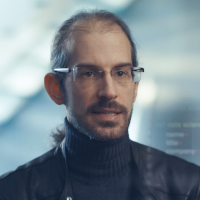
Luca Maria Aiello
Associate Professor at the IT University of Copenhagen, Denmark
O Pensamento Analítico na Otimização e Solução de Problemas em Extração de Documentos
A MOST é especialista na automatização de processos cadastrais. Um dos nossos serviços, o mostQI, é focado na classificação e extração de campos de documentos complexos. Para isso, ele requer o uso de uma camada de leitura óptica de caracteres (OCR) muito robusta.
Nesta apresentação falaremos de alguns dos problemas encontrados durante o desenvolvimento do mostQI, assim como o modo de pensar que nos levou a soluções e algumas otimizações para estes problemas.
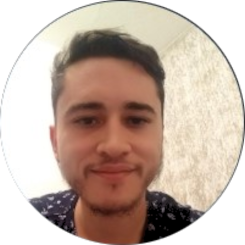
Marco Antônio Ribeiro @Most
Computer and Information Research Scientist
